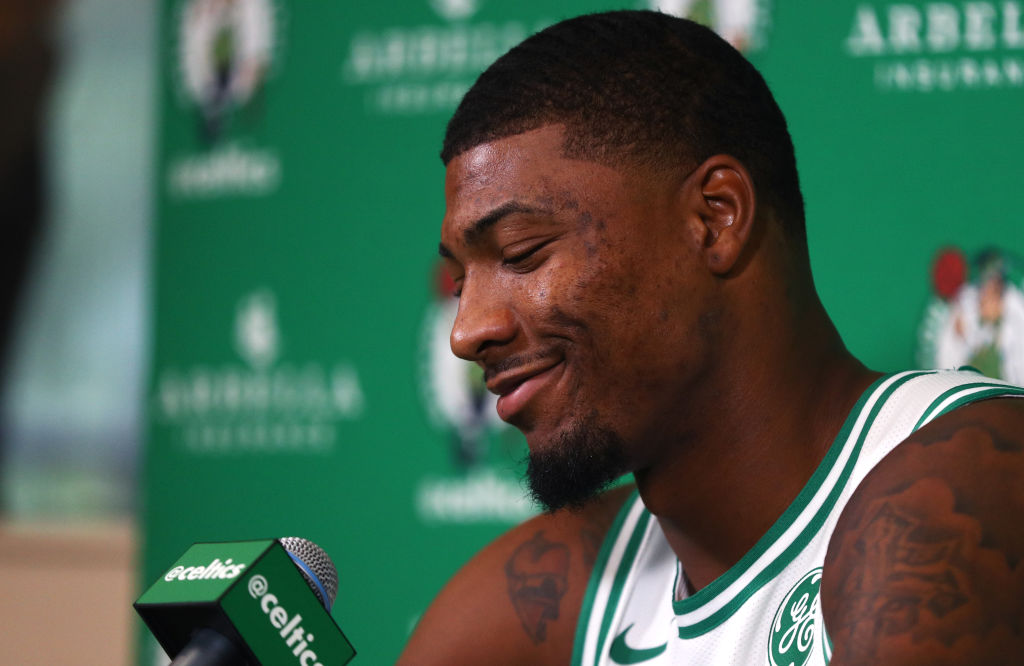A lot of impending restricted free agents have been getting extensions over the past couple of months, but none of them has been Marcus Smart. In fact, according to Shams Charania… the topic hasn’t even come up with the Celtics front office.
Celtics guard Marcus Smart has a strong desire to remain in Boston, but told The Vertical on Monday that his agent, Happy Walters, has yet to hear from the team’s front office about a possible extension.
Members of the 2014 NBA draft class have until midnight ET on Oct. 16 to reach agreements on extensions.
I’m not sure if Walters reached out to Shams or vice versa, but getting his player’s “plight” into the public spotlight may be a way to pressure the Celtics into coming to the table.
As I mentioned yesterday, the types of extensions signed so far indicate Smart will be pretty expensive regardless. And Jay King said on the podcast that an NBA source told him the number could be somewhere in the 4-year, $65 million range… which is a REALLY big number.
But as Tom Ziller wrote regarding the Gary Harris extension, teams don’t often want to roll the dice on restricted free agents.
If this was a bargain for Denver, the question becomes: Why did Harris do it instead of waiting for the opportunity to hunt for a bigger deal as a free agent next summer?
[…] While the NBA has sought to make restricted free agency slightly less onerous for chasing teams to make an offer, it’s still a bad bet. Teams have to convince players to sign offer sheets, often shaping those deals in obnoxious ways to convince the incumbent team not to match. Then their cap space is tied up for three days while the incumbent team makes a decision.For a team to make a second-tier star like Porter or Harris a big offer, the player has to be really good and the chasing team has to have little to lose.
I made the same point in our most recent podcast. When it comes to Smart, he might be worth 4/65 to other teams, but is another team going to chase Smart with that kind of offer?
The three-day waiting period is the killer for Smart. Say, for example, the Chicago Bulls want to chase Smart with a big offer. If they make the offer on day one of free agency, the Celtics can wait three days to match… all the while the Bulls’ cap space is occupied with the amount of that offer. The Celtics can prevent them from pursuing other targets by keeping that money tied up as other free agents make their final decisions.
As we all know, the unrestricted guys are cutting back-room deals in June… they make their announcements right on July 1, forcing the losing team to quickly pivot their attention to other secondary targets.
By then, the money starts to dry up, leaving guys like Smart in the lurch. Business is business, and this is risky business for all sides. Teams risk pissing a player off, leading them to take the Gordon Hayward route once unrestricted free agency hits.
So as I’ve said before, it might be in the interests of both sides to find a palatable deal. The Celtics don’t risk losing a key player to huge deal… Smart gets a huge payday… and both sides move on. We’ll have to see if this story is a way to get both sides talking, or if Ainge is willing to take a risk in July.
Add The Sports Daily to your Google News Feed!
